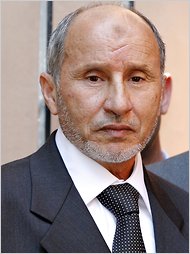By Abdul Rahman Al Ageli.

Tripoli, 12 December:
My name is Abdul Rahman Al Ageli, I am the co-founder and vice president of the . . .[restrict]Libyan Youth Forum, a coalition founded during the revolution that seeks to provide a platform for the voice of the Libyan Youth, and to support the youth in empowering themselves.
This is the introduction to a three-part series analysing youth unemployment and the root causes in Libya.
Today I’m not going to bore you with the slides of numbers, or repeat the same rhetoric and advice to our government, private sector budding civil society and welcome guests, with nice things like the need for capacity building, human resource development, training, etc etc…Because the problem is much more serious than that.
Today we need to be honest and open with each other and discuss the deeper aspects and causes of unemployment, and do so firmly with the historical context Libya is in right now as we move towards developing a new social contract for our future.
At present we are at this juncture in our life, where one fork in the road will take us forward, and the other will only take us back full circle.
My message today is simple, even if the details sound complicated. If we want work that produces actual results the system has to change.
For those of you who have some history and past experience in dealing with employment issues in Libya, especially of youth, you all agree with me that something is terribly wrong.
We all have our own ideas about the dysfunctions and pathologies of local working ‘ethics’ in Libya we all witness on a daily basis.
All of us blame Qaddafi and his regime for controlling all behaviour. A lot of us blame the public sector ‘management’, laws, and the way that corruption, state welfare dependence, has wreaked havoc on society. Others blame the private sector for not investing in local human resources, preferring foreign labor, predatory practices, etc.
While many other, including Libyans, firmly believe that the problem is with the local (mindset) and (culture) of Libyans ourselves, saying it’s not real jobs that we seek, but rather, an entitlement, with all the benefits of (real) employment but without having or producing any of the values, of (real) employment.
In my opinion, all these views are correct, but however they remain only parts of a bigger story… and previous attempts to resolve them in an out-of-context, piecemeal interventions like more training, capacity building, retrenchment etc, were either hijacked, ineffective, un-implementable or backfired into social discontent.
For example, “throwing” jobs into the market, or increased FDI and trade alone is not enough to solve the problem, but is merely a shallow temporary solution, and a masking of reality.
These are the lessons learned by international and local experts from reform efforts in the last ten years.
Contemporary wisdom now says that Libya is saddled with deeper and more intransigent obstacles: weak institutions, problems of governance, and a host of socio-cultural factors (including an encrusted social contract) that effectively prevented reform.
The verdict is that Libya’s economy is structurally and institutionally flawed.
Today my message is that the youth employment problem like most other issues vital in Libya, are produced by larger, economy-wide distortions which are deep rooted in a structural imbalance of the Libyan state, part and parcel of an implicit social contract, exploited by the former regime for political legitimacy, stability and control. At the top, Qaddafi may be gone. But his system persists, and with a vengeance most didn’t expect.
If we want a new paradigm in Libya, then real work, real employment, born by the proper political and economic incentives, must be the backbone of the new economy, and the lifeblood of reconstructed public, private and civil society institutions.
Over the coming few days I will discuss what I mean by the structural imbalances and distortions and explain how they have permeated the overall economy of Libya and how it formed public, private and informal sectors of the working society.
I will show how the bloody impacts of such distortions directly led to the youth becoming the fuel of the revolution, and how misconceptions about the chronic condition of Libyan work attitude were shattered, to prove once again that it is specifically these distortions which Libyans want to leave behind forever.
A version of this article was first presented at the Libya Summit conference in Tripoli 20-22 November 2012. [/restrict]









